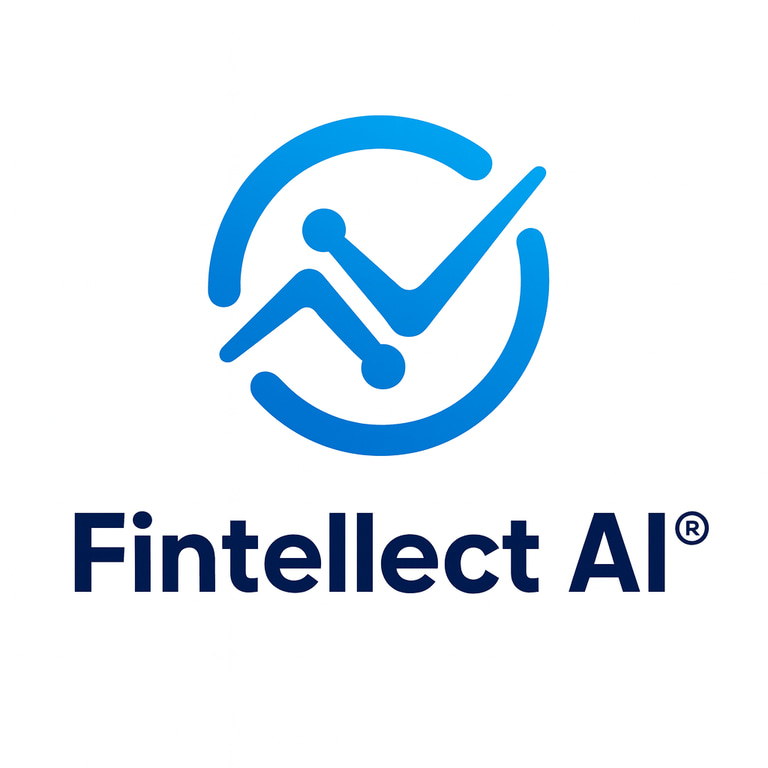The Future of Financial Education: AI as a Tool for Training the Next Generation of Financial Professionals
How Artificial Intelligence Transforms Learning and Prepares Tomorrow's Leaders in Finance
CFO INSIGHTS
Zhivka Nedyalkova
12/21/20244 min read


The Future of Financial Education: AI as a Tool for Training the Next Generation of Financial Professionals
How Artificial Intelligence Transforms Learning and Prepares Tomorrow's Leaders in Finance
In the evolving world of finance, traditional learning methods no longer suffice. In an era where data serves as a "thread of Ariadne," guiding professionals through the labyrinth of complex decisions, and technology advances at lightning speed, educating the next generation of financial professionals must reflect this reality. Artificial Intelligence (AI) is not just transforming businesses—it is revolutionizing the way students grasp intricate financial concepts.
But how exactly does AI help, and which technologies are truly changing the game?
AI as a Personal Financial Mentor
Imagine a classroom without walls, limited only by the imagination and ambition of its students. This classroom isn’t constrained by traditional methods or standard curricula but is guided by intelligent algorithms that adapt to each student’s needs. AI technologies, known as adaptive algorithms, are revolutionizing financial education by offering a unique, personalized experience.
In traditional education systems, all students follow the same curriculum, regardless of their individual strengths and weaknesses. However, in the world of AI-powered adaptive learning, each student receives content tailored to their pace, interests, and requirements. These systems provide customized exercises simulating real-world financial scenarios.
Technologies like Coursera AI and Knewton have already put this concept into practice. They collect real-time data on students’ progress, analyze their challenges, and offer personalized materials. For instance, if a student excels in basic financial planning but struggles with financial crisis modeling, the platform automatically shifts focus to the latter, providing specific examples, simulations, and case studies. This dynamic approach ensures that no two learning journeys are the same, enhancing both engagement and retention.
Simulating Market Conditions
Forget dry theoretical lectures. Picture an online learning platform where students dive straight into the chaos of market conditions. Thanks to AI, these simulations are no longer hypothetical but immersive realities that train future financial professionals to act like seasoned experts. For example, students might find themselves reliving the 2008 financial crisis—a moment that changed the world. Using AI-simulated real data, they face dilemmas like, “Will you lower interest rates?” or “How will you address the surge in non-performing loans?”
A practical example comes from TensorFlow Playground, a Google-created interactive tool. Recently, during a seminar on AI applications in finance, I demonstrated how neural networks—AI models used for forecasting and anomaly detection in finance—operate. By feeding the model data simulating expense approvals and monthly account closures, students explored the analysis layers responsible for processing this data.
AI-powered simulations teach students not just what to think, but how to think—a critical skill in a world where markets and economies evolve rapidly. These tools act as mentors, guiding learners through every step of mastering financial principles.
Gamifying Financial Education
Who says learning can’t be fun? AI introduces a completely new approach to education by transforming it into a game. Imagine a classroom where, instead of listening to a lecture, you compete with peers to become the “most successful portfolio manager.” Through stock trading simulations, students recognize market movements, predict recessions, and even bet on potential "tech unicorns."
Platforms like Stockfuse, leveraging AI, simulate real stock market conditions to challenge aspiring traders to strategize in real-time. The game awards points for profitable trades but also for effective risk management. The goal? Teach students not just to "win" but to do so intelligently and sustainably. Each step is analyzed by the system, offering insights on how to refine their approach.
AI for Predictive Analytics
Data forecasting is at the core of financial planning. Imagine software that not only collects data but also analyzes it to create precise market predictions. AI models like Facebook Prophet or SAS Analytics do just that, using historical data to identify trends. This allows students to learn not only how to interpret data but also how to leverage it for strategic decision-making.
For instance, analyzing seasonal consumption patterns can help students predict when the value of a particular asset will peak. AI provides automated graphs and reports, offering a hands-on experience that is invaluable for anyone entering the financial world. This isn’t just about theory—it’s practical training that bridges the gap between knowledge and application.
Generative AI Tools for Case Studies
Generative AI tools like ChatGPT bring a new level of depth to financial education. They simulate complex scenarios where students face real challenges. For example, how would you handle a financial merger between two competing companies while adhering to a strict budget policy?
ChatGPT generates a scenario based on real-world data, setting conditions like, “You have limited capital and a volatile market. What are your priorities?” These technologies push students to think critically and strategize effectively. Additionally, generative AI provides real-time feedback, highlighting the strengths and weaknesses of decisions, enabling continuous improvement.
Bridging the Gap Between Theory and Practice
AI is not just a tool for learning—it’s a bridge that connects theory with practice. With these technologies, the next generation of financial professionals will be equipped to shape the future of the industry. Does this mean the end of traditional education? Likely not. But one thing is certain—the future belongs to those who can harness the best of both worlds: human intuition combined with the capabilities of artificial intelligence.
In a world where speed and accuracy are paramount, AI provides an unparalleled opportunity for future financial leaders to think big and act confidently.
